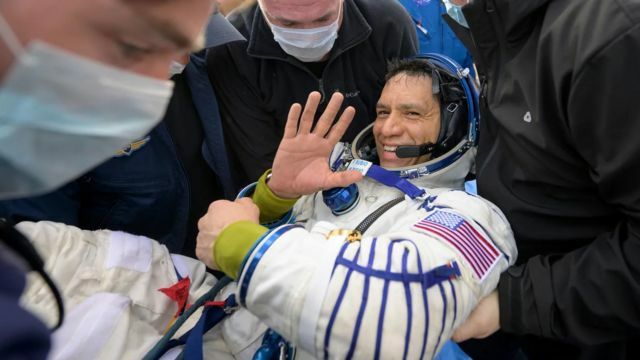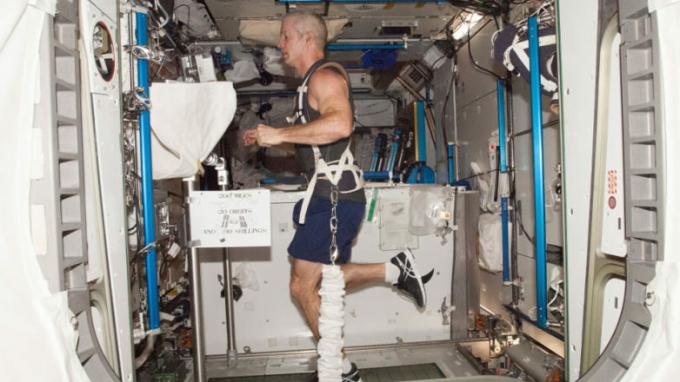
With a radiant smile, the astronaut from NASA Frank Rubio said goodbye to the International Space Station (ISS) after a 371-day stay in space, setting a new record for American spaceflight.
His mission, extended due to a leak in the ship, provided valuable information about how the human body reacts after more than a year in the microgravity environment.
see more
ATTENTION: not washing your pillowcase can make you sick;…
Regrettable moments: remember the biggest environmental disasters in…
These discoveries not only mark an important step in long-duration space exploration, but also shed light on what awaits astronauts on future missions to Mars and beyond.

Frank Rubio, Back to Earth. (Image: NASA/reproduction)
Without the pull of Earth's gravity, astronauts' muscles and bones begin to atrophy quickly. The muscles of the back, neck, calves and quadriceps are the most affected.
In just two weeks, muscle mass can decrease by up to 20%, a marker that increases to 30% on longer missions. The same happens with bones, which can lose up to 2% of their mass every month in space. This increases the risk of fractures and delays healing, taking up to four years for full recovery after returning to normal.
To combat these devastating effects, astronauts perform 2.5 hours of daily exercise on the ISS, including squats, deadlifts and more.

(Image: NASA/reproduction)
However, recent studies suggest that these measures may not be enough to completely preserve muscle mass.
Maintaining a healthy weight in space is a unique challenge. Astronauts' diets are carefully planned, but the lack of food variety can take a toll on their bodies. Scott Kelly, another NASA astronaut, lost 7% of his body mass during his stay on the ISS.
Furthermore, astronauts' gut microbiota undergoes profound changes in space, possibly due to exposure to radiation and the use of recycled water. This can affect digestion, cause inflammation throughout the body and even destabilize brain function.
In space, blood circulation and vision are affected. Microgravity can cause fluid to build up in the head, leading to vision problems, some of which can be permanent.
Additionally, astronauts' cognitive performance may suffer upon return to Earth as their brains adapt to the environment again. gravity and a totally different environment.
One notable discovery is the change in the telomere length of astronauts' DNA during space travel. Although the exact cause is not yet known, radiation exposure in space may play an important role.
Additionally, astronauts' immune systems may experience decreases in white blood cell counts due to radiation.
These discoveries are just the beginning of our understanding of how Human Body responds to long-duration space flights.
As humanity prepares to explore the Solar System, this information is crucial to ensuring the health and well-being of future astronauts.
Frank Rubio's journey represents a milestone in the search for answers and prepares us for the challenges and mysteries that await those who dare to journey into the unknown.


